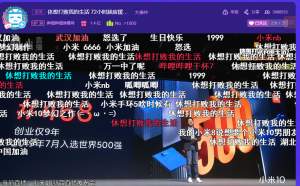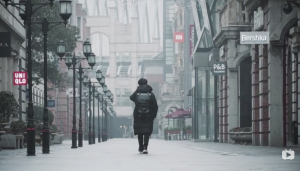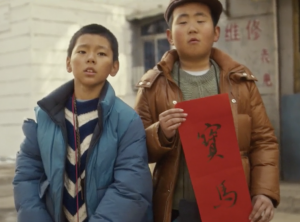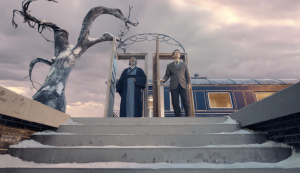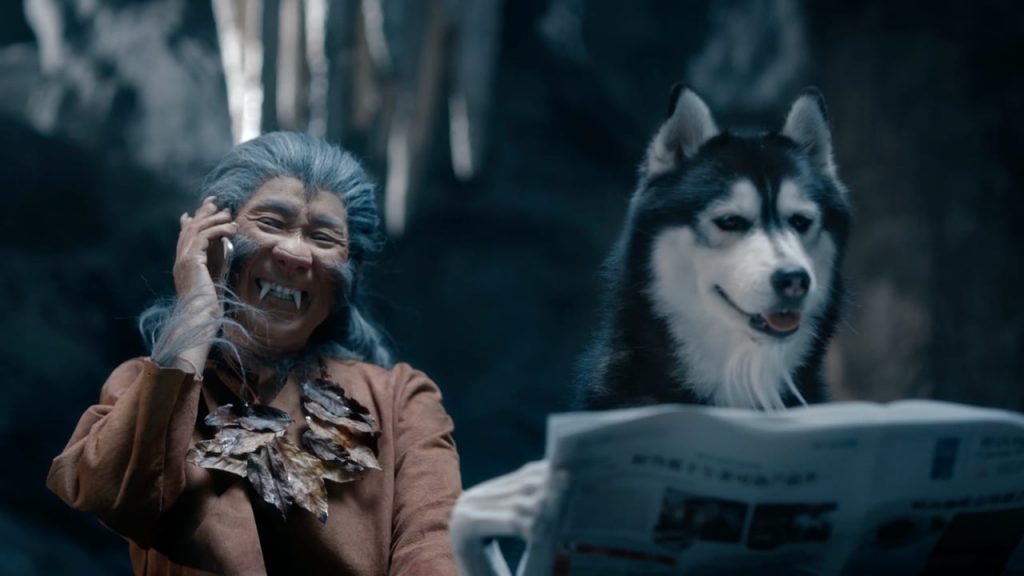
Oppein’s werewolf family reunions have become a Mid-Autumn Tradition
The Mid-Autumn Festival is often compared to Thanksgiving in North America, which is valid insofar as both originated as harvest festivals and are now celebrated as key holidays for families to spend together. In the U.S., families gather on Thanksgiving to watch football, while in China, they gaze at the full moon, said to be at its best on the 15th day of the eighth month in the lunar calendar. For some, the holidays can also bring the stress associated with family relationships.
For the past three years, the Chinese home interior brand Oppein has put a playful spin on the Mid-Autumn Festival with its series of short holiday films, “A Werewolf’s Mid-Autumn Troubles” (狼人的中秋节烦恼). The series features a werewolf named Xiaochen, the mishaps he faces while trying to enjoy the holiday in wolf form, and the respite provided by Oppein.
Implementation: The first film, released in 2017, featured Xiaochen’s horrified in-laws, self-inflicted home destruction, and a SWAT team at the door. Xiaochen considers whether his life is worth living, and realizes he has one person who understands him — his wife, who handily schedules “some mysterious guys” to renovate their home to fit a werewolf’s needs. A year later, the family comes together once more for a much smoother gathering, while the closing epigraph plays on the dual meaning of the word jia (家) for both home and family: “Every home deserves special customization, every family deserves a unique reunion.”
The 2018 sequel shows us the cave-dwelling of Xiaochen’s parents, where the furniture is made of stone, dinner is raw meat, and giant spiders lurk. Xiaochen worries that his wife will be uncomfortable there, but also dreads disappointing his parents by staying away. Xiaochen and his wife make the trip and find the home has been transformed: the stone chair now reclines, food is cooked (thanks to a kitchen that emerges from the wall at the push of a button), and the spider has been turned into a “gift box” for mooncakes. Xiaochen and his father, a wolf, have a heart-to-heart while viewing the moon. “This place is only a cave with your mom and I living here,” the father says, “But it becomes a home with the both of you here.”
This year Oppein tackles the delicate subject of who gets to choose the decor in a society where parents typically make significant contributions to the purchases of their adult children’s homes, and apartments are often sold as empty shells requiring the installation of complete interiors. Xiaochen imagines that the whole family will end up in court fighting over tacky decor if he lets his parents make the decisions, but in the end, Xiaochen is surprised and delighted at the tasteful and modern interior that he finds. “What do we know about design?” his wolf dad says, “It’s all from the TV,” he remarks as an Oppein commercial, with an actor in a werewolf mask, plays on their living room screen. “Fighting while together but missing each other while apart — this is family.”
The Shanghai ad agency Goodzilla is behind the series, but it was produced in Thailand with director Unnop Chanpaibool at the helm, and the films show the influence of Thai comedic flair.
Results: The themes of transformation in both the werewolf and the homes portrayed go hand-in-hand with Oppein’s role as a force that can transform interiors as well as its own efforts to expand its brand. The company is best known as a maker of kitchen cabinets, but since 2014, it has sought to broaden its business by offering full home design and renovation.
Though somewhat “hard” in its placement of the Oppein brand throughout, the series has generally been well-received, and werewolf Xiaochen and his family are now beloved characters associated with the Mid-Autumn Festival in China. The films also establish a strong brand association between Oppein’s products and their ability to satisfy even the most unique, or “special,” customers, while resonating with the holiday themes of family and home.
Some critics have expressed disappointment with this year’s film, particularly since the birth of a werewolf baby was teased in a bonus scene after the closing credits last year. But others are already looking forward to part four in 2020.



